Anesthesia Education – SEA Newsletter
 The fall meeting of the Society for Education (SEA) in Anesthesiology in Chicago, IL on November 7th, 2024 was titled “The Year of the Educator.” The theme was chosen to highlight the need for and support of development and growth of members as educators. The SEA fall meeting took place the day before the Society of Academic Associations of Anesthesiology & Perioperative Medicine to allow residency and fellowship program leadership the opportunity to extend and expand their learning at both meetings.
The fall meeting of the Society for Education (SEA) in Anesthesiology in Chicago, IL on November 7th, 2024 was titled “The Year of the Educator.” The theme was chosen to highlight the need for and support of development and growth of members as educators. The SEA fall meeting took place the day before the Society of Academic Associations of Anesthesiology & Perioperative Medicine to allow residency and fellowship program leadership the opportunity to extend and expand their learning at both meetings.
The meeting opened with breakfast roundtable committee meetings. This time to network and meet other educators is a highlight of every SEA meeting, with committees being open to any interested new members. This year, the start time was slightly delayed to 8 AM to accommodate those who arrived in Chicago late the evening prior and those from western time zones. Please let us know if you liked that change!
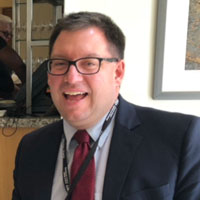
An Interview with Dr. Michael P. Hofkamp, M.D.
Associate Professor of Anesthesiology and Obstetrics & Gynecology
Baylor College of Medicine
https://www.asahq.org/about-asa/newsroom/news-releases/2024/10/sexual-harassment-in-academic-medicine
We were astonished by the findings in the AAMC's "State of Women in Academic Medicine 2023-2024" report, that put forward the progress and persistent challenges in gender equity, particularly in our specialty. We commend our national societies who support women leaders in succeeding in their academic trajectory. The AAMC report shows the increase in the percentage of women chairs in academic anesthesiology departments from 13% in 2004 to 18% in 2024. We also recognize the narrowing of the compensation gap with women earning $0.94 for every dollar earned by their male colleagues. However, neither of these accomplishments are sufficient, and we must strive to break the “glass ceiling” and support gender equity at all levels.
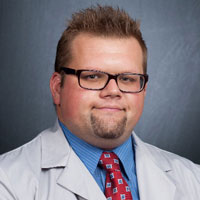
For those looking for a fresh take on the murder mystery fiction genre, you can do no wrong picking up Australian author Benjamin Stevenson’s Everyone On This Train Is A Suspect. The second book in the Ernest Cunningham series finds murder mystery writer Ernest Cunningham invited to attend a mystery writer’s festival taking place entirely during a long haul train ride across the Austrailian desert. The odd man out among more established murder mystery authors, Ernest is faced with pressure from needing to follow up his one (and only) successful whodunit novel. That story just so happened to be more of a recounting of events of a murder he stumbled upon (the subject of Ernest Cunningham book #1 – Everyone In My Family Has Killed Someone). His publisher suggests the cure for his writers block is attending the event, but without the advantage of real life event to spark his penmanship, he finds himself thinking how much easier it would be if tragedy struck the train. What are the odds it happens again…

Stevenson blends the fictional world of Ernest with the practical aspects of how to write a successful and gripping murder mystery. Frequently referencing S. S. Van Dine’s Twenty Rules for Writing Detective Stories (first published in 1928), Stevenson offers a playful recounting of the events of the 50th anniversary Australian Mystery Writers Festival. Included in the fictionalized memoir are the rules for mystery fiction including nothing supernatural, murderer must be a major enough character to impact the plot, etc. A clever and refreshing take on the genre, Everyone On This Train Is A Suspect will be hard to put down for both seasoned veteran mystery readers and neophytes alike. You need not start at the first book in the series and can read this as a standalone, though there are reference to the prior novel. Love, forensics, logic, and storytelling are all a part of Ernest’s world. The question is not whether you should pick it up, but rather can you solve the mystery before Ernest does?
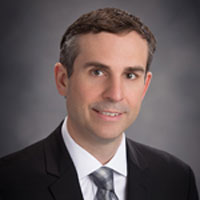 This will be my final contribution to the SEA newsletter as President. It provides me with the opportunity to reflect on what we have accomplished in the last two years and where we are going in the future. We emerged from COVID hungry for contact and renewed academic vigor, even as we struggled with less time and money allocated for educational endeavors. As a society, we have worked hard to provide our members with enhanced mentoring, resources and support. We continue to work together to address the issues we all face and develop creative solutions to our problems. I am proud of our demonstration of resilience and enthusiastic attack on problems that others have resigned themselves to.
This will be my final contribution to the SEA newsletter as President. It provides me with the opportunity to reflect on what we have accomplished in the last two years and where we are going in the future. We emerged from COVID hungry for contact and renewed academic vigor, even as we struggled with less time and money allocated for educational endeavors. As a society, we have worked hard to provide our members with enhanced mentoring, resources and support. We continue to work together to address the issues we all face and develop creative solutions to our problems. I am proud of our demonstration of resilience and enthusiastic attack on problems that others have resigned themselves to.
We have shined in our integration of research and technology into education. Our mentoring network for research is robust and successful. We share ideas on how to apply the latest tools to conduct research and facilitate teaching and learning. It has been a great joy for me personally to reconnect with former trainees and partners through SEA designed programs to help them navigate their research and careers.
|
Dr. Lauren Buhl
|
Dr. Dante Cerza
|
The 2024 Spring Meeting of the Society for Education in Anesthesiology (SEA) in Philadelphia, April 19-21, was designed to bring together top minds in Education, Anesthesiology, and Cognitive Psychology, and thanks to a cadre of dynamic keynote speakers and the perennial willingness of SEA members to try something new, we think it was an overwhelming success. The theme “The Science of Learning” was chosen to shine a light on the basic and applied research in Cognitive Psychology and Neuroscience that underlies so many of our practical approaches to teaching and learning but is not always readily accessible to clinical educators. By bringing this work into the clinical realm through our SEA members, we hope it will inspire new practical approaches to teaching and learning and new avenues for anesthesia education research grounded in basic science.
Dr. Cynthia Nebel opened the meeting on Friday morning with her talk entitled “Effective Learning Strategies for Planning and Reinforcement of Learning” and returned in the afternoon for a follow-up talk, “Strategies for Development of Understanding.” She emphasized that effective learning doesn’t just happen but requires planning, and she introduced the concepts of spacing and interleaving. She also laid out strategies such as elaborative interrogation, concrete examples, and dual coding to help learners develop understanding, and discussed ways to apply retrieval practice to reinforce learning. For anyone who missed her talks or wants a refresher, learningscientists.org is a treasure trove of content from Dr. Nebel and her colleagues on these topics and many more.
The Society for Education in Anesthesia (SEA) Well-Being Committee: Fostering Resilience and Building Connections
The Society for Education in Anesthesia (SEA) has recently established a Well-Being Committee. Historically, the work of this committee was housed under the American Society of Anesthesiologists’ (ASA) Committee on Physician Well-Being. In bringing the committee to the SEA, the hope is to strengthen the intersection between education, anesthesia, and well-being and to continue the meaningful work that was started under the ASA. This committee aims to promote the physical, emotional, and mental well-being of anesthesia professionals and learners across the spectrum of their careers. Let’s delve into the key aspects of this exciting initiative.
The Society for Education in Anesthesia (SEA) values scholarship and an inclusive community in medicine. As educators we understand that the foundation of a diverse and inclusive physician care team starts in medical school. A diverse workforce has been shown to “lead to higher-quality work, better decision-making, greater team satisfaction, and more equality.”1, 2, 3 All individuals, if they so desire, should have an equitable opportunity to become a physician educator and be part of a diverse workforce. The Embracing Anti – Discrimination, Unbiased Curriculum, and Advancing Truth in Education (EDUCATE) Act, H.R. 7725, violates the values of SEA. SEA strongly opposes the EDUCATE Act and continues to strive for inclusion and diversity in medicine.
- Minkin R. Diversity, Equity and Inclusion in the Workplace. Pew Research Center, March 2023.
- Ely RJ and Thomas DA. Getting Serious About Diversity: Enough Already with the Business Case. It’s time for a new way of thinking. HBR Nov-Dec 2020.
- Gomez LE, Bernet P. Diversity improves performance and outcomes. J Natl Med Assoc. 2019 Aug;111(4):383-392. doi: 10.1016/j.jnma.2019.01.006. Epub 2019 Feb 11. PMID: 30765101.
Anxious People
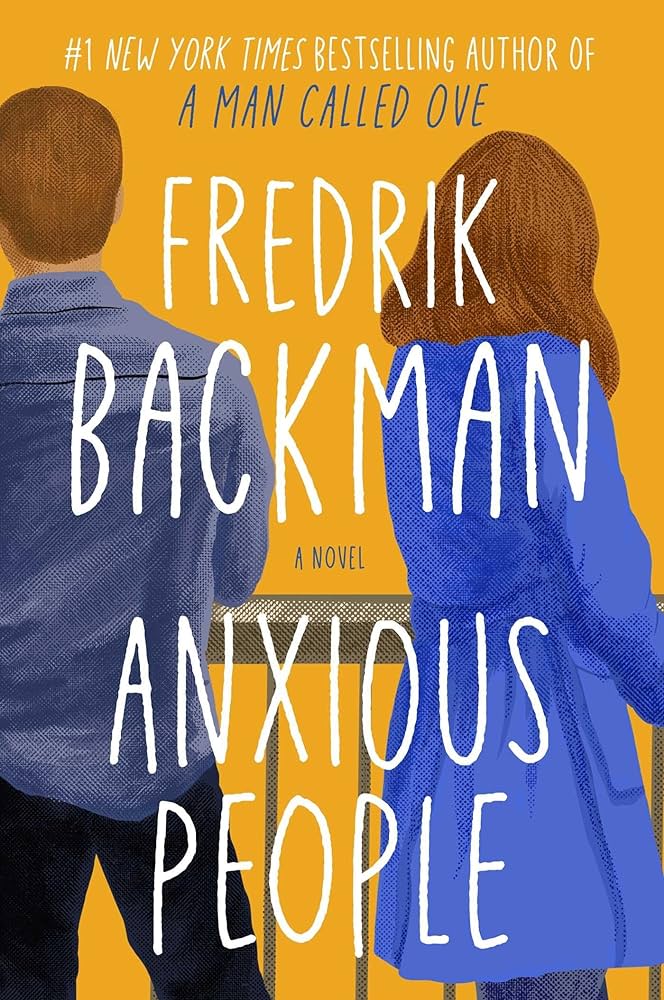 |

Dr. Sukhman Shergill
|
When someone can make mundane things seem interesting to you, that for me is a mark of a great writer. And one such favorite of mine is Fredrik Backman and his book called Anxious People. Fredrik is a NY Times bestselling author who comes from Sweden and is also a columnist and a blogger. His works have been published in more than 40 countries all over. Through his works of fiction, he focuses on the essence of being a human while navigating life, in a very uplifting way which makes for great bedtime read.
Anxious people is a tragicomic tale set in a small town of Sweden, where a series of events unfold on New Year’s eve. His story is character focused and goes back and forth between multiple characters giving the book a quick pace, but since he tackles a complex storyline with greatly lucid writing, it is easy to keep up. The story starts as a robbery that turns into a hostage situation, and when you imagine it going in one direction the plot pivots in the most unexpected and poignant ways. The narrative revolves around the stories of the characters which are - a robber, the policemen and the hostages and what a situation can bring out of different people.

Titilopemi Aina-Jones, MD, MPH, FASA |
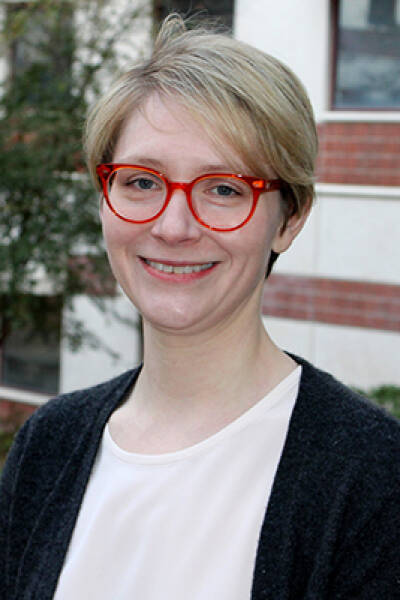
K. Karisa Walker, MD, MEd
|
SEA 2023 Fall Meeting Re-Cap
The 2023 Society for Education in Anesthesia (SEA) Fall Meeting, held on Thursday, November 2nd, 2023, at the Swissotel Chicago, was an outstanding meeting. There were more than 200 attendees! The feedback has been overwhelmingly positive, with comments about the high-quality educational sessions and valuable networking opportunities.
A Double Edged Sword: How Technology is Shaping Anesthesiology Residency
Anesthesiology has evolved significantly since the days of chloroform induction and the copper kettle. Technological advancements have given us the ability to gather real time intraoperative data to provide personalized, safe and effective medical care. The emergence of the electronic medical record (EMR), paging systems, and ultrasound particularly affect anesthesiology trainees given frequent use of these technologies to provide anesthetic care and I want to spend some time reflecting on the implications for the modern trainee. While beneficial in many regards, the hardware and software technology we rely upon to provide anesthesia daily is not without fault, and has subtle negative consequences that are often overlooked or hard to appreciate.
The EMR and web based, two-way paging systems have exponentially improved medical care. A modern EMR allows for seamless, concise, and efficient record keeping. It also facilitates sharing of information about patient care across specialties and disciplines. Also, providers can easily evaluate prior anesthetics and anticipate potential complications in upcoming surgeries without needing to visit medical records to pull paper charts. Paging systems accelerate communication between trainees and members of the care team such as attending physicians, nurses, and pharmacists. Attending physicians are more rapidly notified of intraoperative events due to the use of EMR and paging systems as well.
A Discussion of Evolving Modalities in Medical Education for Anesthesiology Residents
The field of education in anesthesiology has undergone significant changes in recent years. Anesthesiology trainees now engage in many different learning styles and use a multitude of educational resources. Understanding and incorporating these various learning modalities is important not only for effective residency training but also for improving patient outcomes, quality of care, and clinical revenue.1,2
Welcome to another addition of the SEA newsletter!
It’s been a wildly productive year from SEA on many fronts. While all committees have been amazing, I’ll hit just a few highlights here and invite you to peruse the newsletter.
First a shoutout to Bryan Mahoney and Dave Stahl, the masterminds behind the PD’s at SEA podcast. This series has been tackling several key issues in our specialty with intelligence, wit, and humor. I strongly suggest that you check it out if you have not yet.
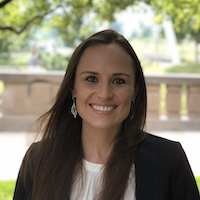 Dr. Monica Arndt Dr. Monica Arndt |
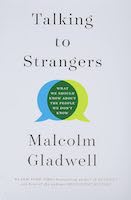 |
Review submitted by Dr. Monica Arndt, PGY4 resident in the Department of Anesthesiology at Yale School of Medicine
With the proposition of ‘what we should know about the people we don’t know’, Malcolm Gladwell invites us to approach strangers with humility and caution on his best seller “Talking to Strangers”.
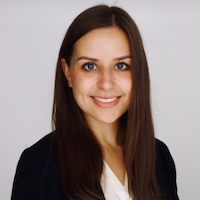 Natalie Koons, DO Natalie Koons, DO |
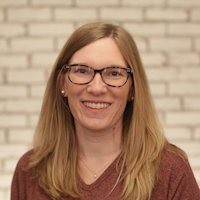
Rachel Moquin, EdD |
This infographic was creating using survey data gathered from medical students, recently matched residents, and anesthesiology program leadership regarding advisement on the use of signaling in the Match. We hope that it inspires improved communication and transparency in the anesthesiology application cycle.
Dr. Koons is a current PGY1 anesthesiology resident at Stanford's Department of Anesthesiology, Perioperative and Pain Medicine and Dr. Moquin is currently an Assistant Professor and Director of Learning and Development at the Department of Anesthesiology, Washington University School of Medicine in St. Louis.

Sukhman Shergill, MD |
In the realm of medicine, I see a myriad of heroes don invisible capes as they strive relentlessly to improve lives. Their stories of compassion, humility and resilience stirred me as I took a front row seat to these chronicles during medical school in India and residency training in the United States. They inspired me to be part of something greater, a purpose that transcended hospital walls and touched lives far and wide. When the opportunity of the SEA-HVO global health traveling fellowship presented itself, I felt that perhaps this could be what I had been looking for. With anticipation and excitement, I prepared for the journey. However, a lingering question remained in the back of my mind – how much of a difference could one person really make?
My adventure was off to a rocky start. While navigating through connecting airports in Vietnam, I almost lost my luggage due to a miscommunication. Thankfully, I avoided having to repeat outfits through the skills learned in residency, of keeping calm while my brain was flooded with adrenaline, helped along by the immense kindness of strangers in this new land. Exhausted yet brimming with enthusiasm, I finally reached my destination, ready to wholeheartedly embrace whatever adventures the next four weeks had in store.
Coach Training for Leaders and Educators in HealthCare (CFLinHC): Coming to the SEA in January 2024.
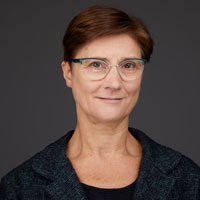
Karen Souter, MBBS, FRCA, MACM |
Flying back to the West coast in March 2018 I noticed the man in the window seat gazing out of the window for a very long time. Eventually he turned to me and said, “what a day, huh?!” I smiled and nodded and asked, “what do you do?”. He said uneasily I’m the CEO of a company that builds automatic software for vehicles. I nodded again a little more knowingly – this week a bad accident had occurred involving a self-drive car. He asked me “what do you do?”. “I’m an executive coach” I said simply. He rolled his eyes and said rather loudly “Coaches, coaches, coaches. Everyone’s a coach these days!”. For a moment I thought about defending the honor of coaches and coaching leaders everywhere and then I decided to behave like a coach. “I know there are more of us around than there used to be... Are you headed home?”. He nodded.
“What are you heading into?
My team is freaked out” he said, quietly.
“(The)pristine path (to publication) does not usually exist in the real world of assembling a journal. It is strewn with boulders and potholes called politics, ethics, conflict of interest, tardy review, and, worse, incompetent review.”
-Stuart J. Salasche, MD
Editorial in Dermatologic Surgery
Becoming a peer reviewer is an important role taken on by a scientific professional. Peer review allows for the creation of new knowledge and its dissemination to the wider academic and research communities through publication. This contribution by the scientist is a critical component of the overall publication process and confers added value to a submitted paper. Because academic careers depend on being published in high-quality journals, peer review is both a privilege as well as a great responsibility. The diligent peer reviewer must function as both an “Author Advocate” as well as a “Journal Advocate.”
We are pleased to report the Society for Education in Anesthesia (SEA) Spring Meeting was both well attended and successful, despite unintentionally running concurrently with the 2023 AUA/IARS/SOCCA meetings. There was considerable positive feedback about the meeting location and hotel chosen, most notably that all sessions were held on the same floor thus encouraging mingling among attendees. Thank you to the SEA Meeting Planning Committee for this fantastic hotel choice.
The theme “Going Up! Making Your Case and Supporting Colleagues Through Promotion” was chosen to target younger members and increase involvement within the society, with the thought that senior department leadership may be attending AUA/IARS/SOCCA, and this would ensure meeting success. Our goal was to support educators within the field of anesthesiology in documenting and showing off their successes, as well ask making promotion to associate or full professor achievable by all members.
 Let’s keep this short & sweet! We want to provide SEA members with quarterly newsletters that contain educational, inspiring, and interesting pieces. If you have an idea for a submission, or an author, and want to share, please email [email protected]. Feedback is always appreciated. We will continue to issue longer summer and winter editions, and shorter fall/spring pre-meeting editions. Thank you in advance for your attention. Enjoy!
Let’s keep this short & sweet! We want to provide SEA members with quarterly newsletters that contain educational, inspiring, and interesting pieces. If you have an idea for a submission, or an author, and want to share, please email [email protected]. Feedback is always appreciated. We will continue to issue longer summer and winter editions, and shorter fall/spring pre-meeting editions. Thank you in advance for your attention. Enjoy!
-Michael Majewski, MD
Chair, Publications Committee
- Page 1 of 7
- << first < Prev 1 2 3 4 5 6 7 Next > last >>
 The fall meeting of the Society for Education (SEA) in Anesthesiology in Chicago, IL on November 7th, 2024 was titled “The Year of the Educator.” The theme was chosen to highlight the need for and support of development and growth of members as educators. The SEA fall meeting took place the day before the Society of Academic Associations of Anesthesiology & Perioperative Medicine to allow residency and fellowship program leadership the opportunity to extend and expand their learning at both meetings.
The fall meeting of the Society for Education (SEA) in Anesthesiology in Chicago, IL on November 7th, 2024 was titled “The Year of the Educator.” The theme was chosen to highlight the need for and support of development and growth of members as educators. The SEA fall meeting took place the day before the Society of Academic Associations of Anesthesiology & Perioperative Medicine to allow residency and fellowship program leadership the opportunity to extend and expand their learning at both meetings. 




 This will be my final contribution to the SEA newsletter as President. It provides me with the opportunity to reflect on what we have accomplished in the last two years and where we are going in the future. We emerged from COVID hungry for contact and renewed academic vigor, even as we struggled with less time and money allocated for educational endeavors. As a society, we have worked hard to provide our members with enhanced mentoring, resources and support. We continue to work together to address the issues we all face and develop creative solutions to our problems. I am proud of our demonstration of resilience and enthusiastic attack on problems that others have resigned themselves to.
This will be my final contribution to the SEA newsletter as President. It provides me with the opportunity to reflect on what we have accomplished in the last two years and where we are going in the future. We emerged from COVID hungry for contact and renewed academic vigor, even as we struggled with less time and money allocated for educational endeavors. As a society, we have worked hard to provide our members with enhanced mentoring, resources and support. We continue to work together to address the issues we all face and develop creative solutions to our problems. I am proud of our demonstration of resilience and enthusiastic attack on problems that others have resigned themselves to.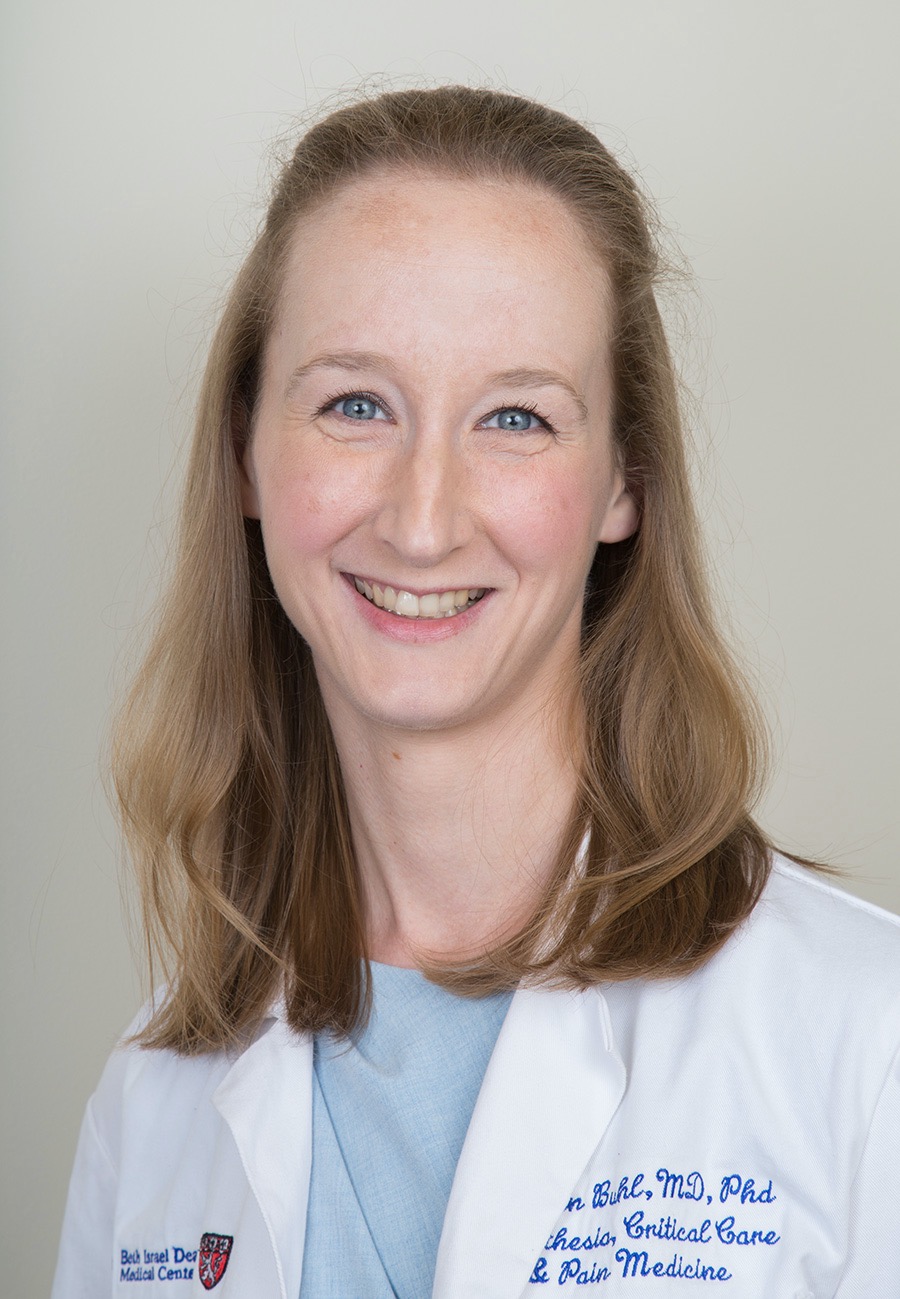






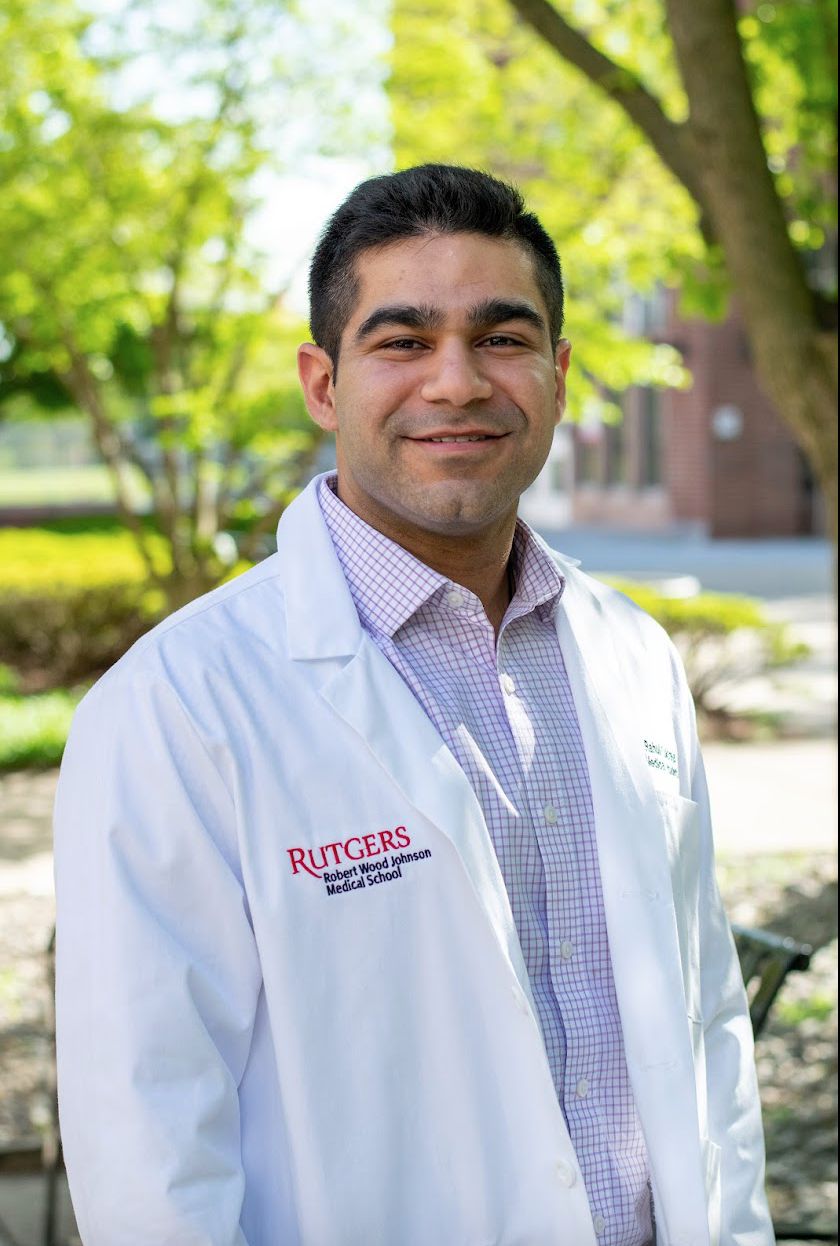
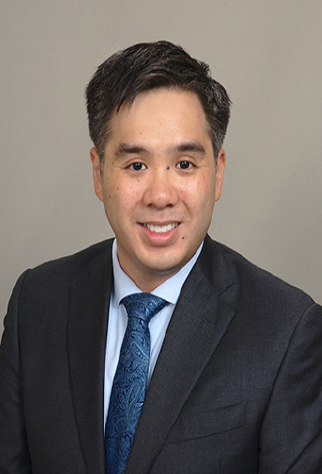
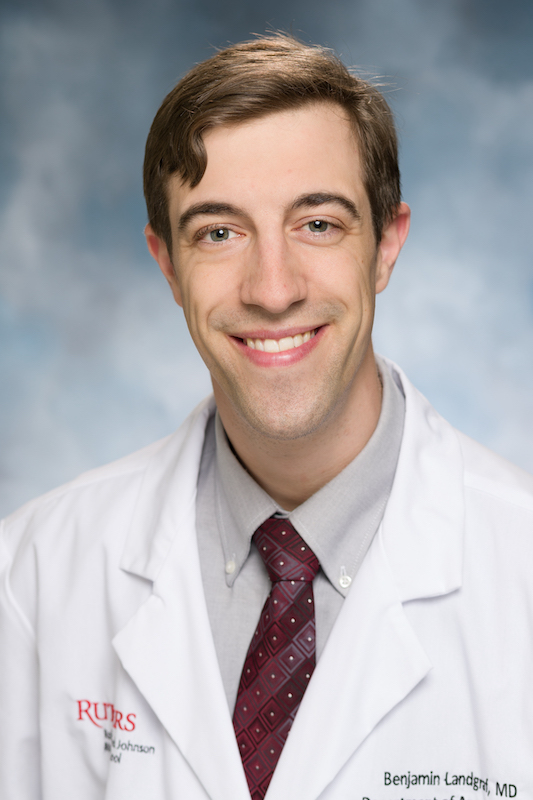

 Dr. Monica Arndt
Dr. Monica Arndt
 Natalie Koons, DO
Natalie Koons, DO

